Calf Care Quality Assurance Training Program
The Calf Care Quality Assurance (CCQA) Training Program educates calf raisers to ensure optimal health and welfare is provided to all male and female calves intended for dairy and beef production systems. It is the first collaborative educational tool of its kind intended for the U.S. calf-raising sector.
The program initiates a mindset that prompts calf raisers to approach management decisions with thoughtfulness and in a way that keeps the health of wellbeing of both cattle and humans involved in these production systems a priority. The program covers the following topics:
Calf Health
The success of any cattle production system is closely tied to the health and welfare of the animals. CCQA outlines good management practices for preventing and treating diseases, monitoring production and performance, and timely decision making.
- Veterinarian-Client-Patient Relationship
- Health Management Plan
- Individual Animal Identification
- Drug Use and Stewardship
- Treatment Records
- Monitoring Calf Morbidity $ Mortality
- Vaccinations
- Biosecurity and Sanitation
- Non-Ambulatory Animals
- Euthanasia
- Transportation
- Monitoring Production and Performance
- Locomotion
Animal Handling and Stockmanship
Proper animal handling is important to ensure optimal animal welfare and operational efficiency. CCQA outlines good management practices to follow while handling calves.
- Basic Handling, Movement, and Restraint
- Animal Handling and Processing
- Broken Tails
- Tail Docking
- Abuse and Neglect
Management and Care
Feed, water, housing, quality environment, social contact, exercise and freedom of movement are all important considerations when considering calf management and care.
- Water and Feed
- Nutrition
- Body Condition
- Resting Area
- Cleanliness
- Hock and Knee Injuries
- Environment Quality
- Social Contact
- Exercise and Freedom of Movement
- Disbudding and Dehorning
- Castration
- Supernumerary Teat Removal
Personnel Training and Emergency Preparedness
The success of any cattle facility, and the health and welfare of the cattle depends on the quality of care that the staff provide. Training is a critical part of ensuring consistent and accurate care for all animals.
- Employee Training and Continuing Education
- Emergency Preparedness
If you think you or your employees could benefit from the CCQA training program visit their site today! The program is free to complete and is available in both English and Spanish as well as includes many free resources!
Written by: Mariah Gull, M.S.
